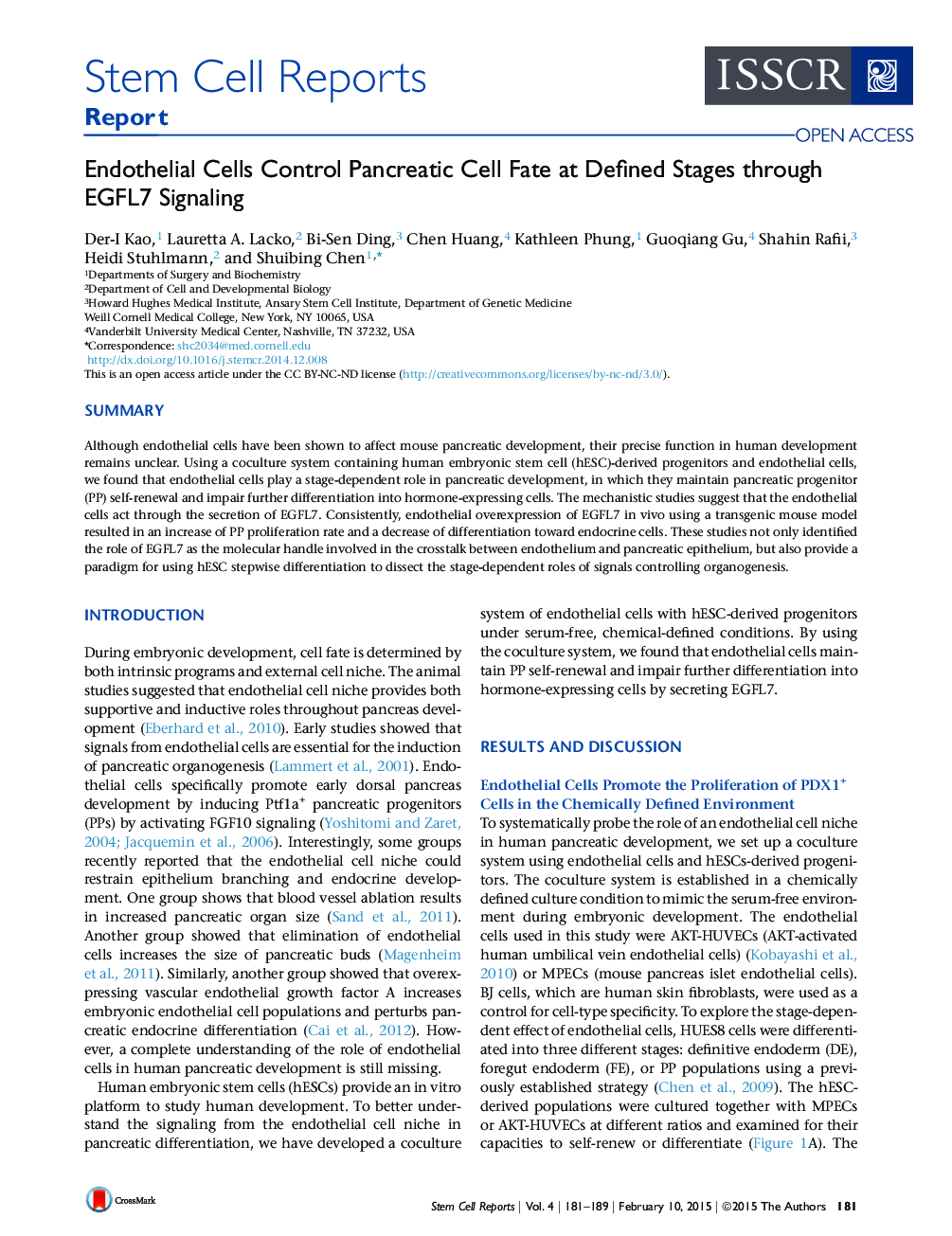| Article ID | Journal | Published Year | Pages | File Type |
|---|---|---|---|---|
| 2093557 | Stem Cell Reports | 2015 | 9 Pages |
•Endothelial cells play a stage-dependent role in embryonic pancreatic development•Endothelial cells maintain pancreatic progenitor self-renewal by secreting EGFL7•Overexpression of EGFL7 in vivo increases pancreatic progenitor proliferation
SummaryAlthough endothelial cells have been shown to affect mouse pancreatic development, their precise function in human development remains unclear. Using a coculture system containing human embryonic stem cell (hESC)-derived progenitors and endothelial cells, we found that endothelial cells play a stage-dependent role in pancreatic development, in which they maintain pancreatic progenitor (PP) self-renewal and impair further differentiation into hormone-expressing cells. The mechanistic studies suggest that the endothelial cells act through the secretion of EGFL7. Consistently, endothelial overexpression of EGFL7 in vivo using a transgenic mouse model resulted in an increase of PP proliferation rate and a decrease of differentiation toward endocrine cells. These studies not only identified the role of EGFL7 as the molecular handle involved in the crosstalk between endothelium and pancreatic epithelium, but also provide a paradigm for using hESC stepwise differentiation to dissect the stage-dependent roles of signals controlling organogenesis.
Graphical AbstractFigure optionsDownload full-size imageDownload as PowerPoint slide
